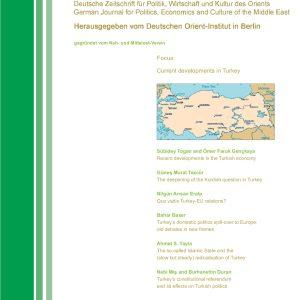Description
Turkey has been experiencing an authoritarian shift, which has affected its relations with Europe in a negative way. The recent referendum on various constitutional amendments, which proposed changing Turkey’s parliamentarian system to a presidential one, caused significant domestic tensions. The fact that the Turkish diaspora also participated in this political change via extraterritorial voting also diffused the tensions to the transnational space. In this article, I discuss the consequences of contemporary Turkish politics for the Turkish diaspora in Germany and in Europe at large, and explain the reasons behind the Turkish diaspora’s so-called ‘undemocratic remittances’.
Bahar Baser is a Research Fellow at the Centre for Peace, Trust and Social Relations. She is also an associate research fellow at the Security Institute for Governance and leadership in Africa (SIGlA), Stellenbosch University, South Africa. Her book Diasporas and Homeland Conflicts: A Comparative Perspective was published by Routledge in 2015. She has two co-edited volumes forthcoming in 2017 from IB Tauris: Authoritarian Politics in Turkey (co-edited with Ahmet Erdi Ozturk) and Migration from Turkey to Sweden: Integration, Belonging and Transnational Community (co-edited with Paul levin).




Reviews
There are no reviews yet.